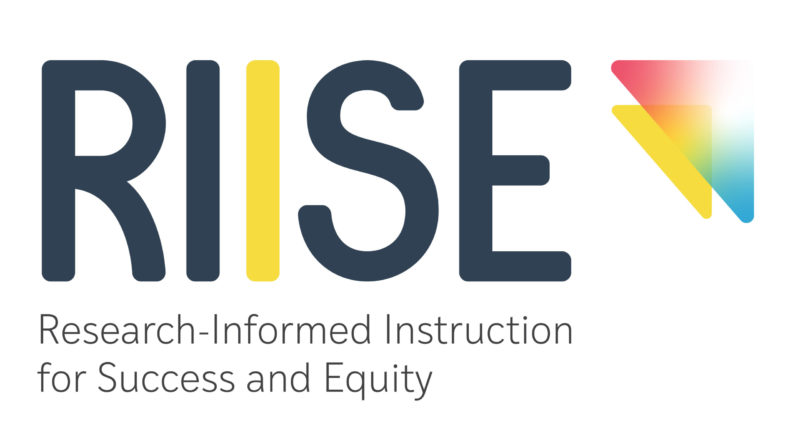
Research-Informed Instruction for Success and Equity (RIISE) was developed in response to data showing that nationally, many pre-service teacher programs are not addressing decades of reading research referred to in social media as the “Science of Reading,” as put forth by the National Reading Panel, The Reading League, and the International Dyslexia Association.
The RIISE menu of courses can be scheduled for onsite professional development, or taken by individuals to fulfill re-credentialing requirements to maintain Wilson Reading System certifications.
The RIISE courses were developed to prepare educators to pass the nationally administered Knowledge and Practice Exam for Effective Reading Instruction (KPEERI), which measures an educator’s knowledge of the principles and practices of Structured Literacy™. By passing the KPEERI exam, a RIISE graduate will earn their national certification as a Structured Literacy Practitioner.
Participants will explore historical and current brain research related to language- based learning disorders including Dyslexia. Participants will be able to identify the structural and functional brain differences in good and poor readers and how the brain makes sense of print. Participants will be able to identify the characteristics of Dyslexia and co-morbid conditions such as ADHD, Executive Functioning difficulties and other communication disorders. They will explore characteristics and research concerning the presenting indicators and consequences of Dyslexia through the lifespan, beginning with pre-k. Case studies will be presented.
Participants will explore the domains of language processing and how it influences decoding, reading comprehension, and written expression. Participants will be able to identify brain structures that support language and ultimately reading. They will be able to identify the seven language domains to better inform their own instruction of reading and writing skills. This knowledge will then help educators identify students in all grades who require intervention. Participants will also explore methods and materials for assessment and data collection used for designing diagnostic instruction. Focus will center on the need to identify when to intervene, especially with preschool students.
Participants will explore the connections between spelling, written expression, reading fluency and comprehension. Current research about spelling, written expression, and handwriting will be discussed. Methods for building written expression, from the simple sentence to paragraph writing and larger compositions, will be explored. Pre-Writing and editing techniques will also be discussed. Writing samples will be evaluated to diagnose specific remediation techniques in order to build better written expression.
Participants will learn best practices for assessing all domains of literacy beginning with pre-k. They will learn typical benchmarks for listening, reading and written expression including handwriting. Participants will explore and use a variety of diagnostic assessments including screeners, formative and summative assessments for students in pre-k through adulthood. The importance of early identification of language/literacy disorders will be addressed. Error analysis will be undertaken so teachers can provide diagnostic instruction.
Participants will explore the historical and current research concerning best practice in helping students make meaning from print. They will identify that oral language is critical in this process, and they will identify benchmarks for oral language that will facilitate reading comprehension. Assessments designed to measure decoding, vocabulary, fluency, listening and reading comprehension will be explored and practiced.
Learn about the latest research findings and best practices in early childhood literacy and numeracy. Included are tools designed to measure early literacy and math foundational skills, and an overview of the curriculums developed to explicitly teach foundational literacy and numeracy skills. Persistent myths about what and how to teach our youngest students will be busted!
Once you have adopted a Universal Screener, how do you leverage the results to make meaningful changes in your students’ literacy skills? For too many educators, the data is collected, but not acted upon. It is important to understand the “why” of each measure in a screener, “how” to use each benchmark to set goals for students identified as ‘at risk,’ and “what” the intervention should look like.